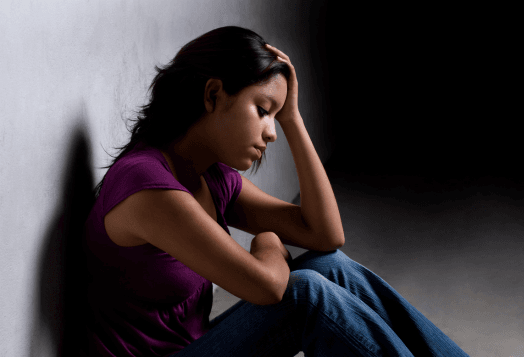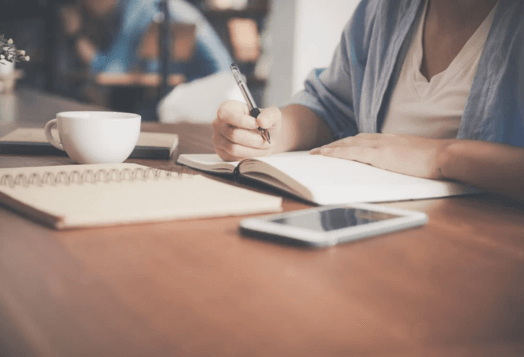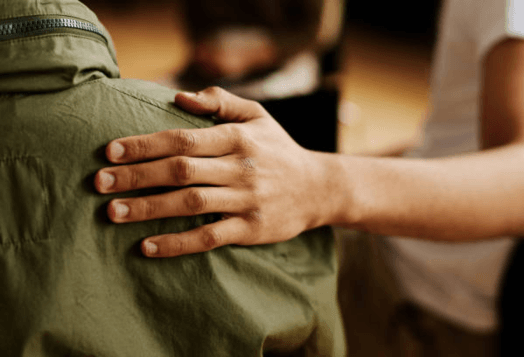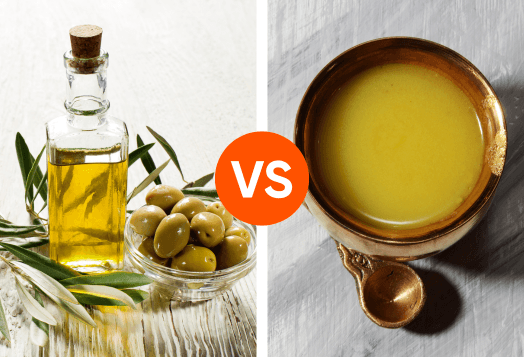
Some pain doesn’t leave bruises, but it lingers all the same. Emotional pain can feel like a quiet ache, no one sees a heavy heart, a mind that won’t switch off, a tiredness that even sleep can’t fix. Mental pain adds another layer, making it hard to think clearly, to feel like yourself. But it’s not weakness; it’s being human. If you’re worn out from pretending you're fine, this is your space.
Keep reading, healing starts with understanding.
Understanding Emotional Pain
Emotional pain is that quiet kind of suffering that doesn’t leave marks, but you feel it all the same. It’s what lingers after heartbreak, trauma, or personal loss. You carry it like an invisible weight something scans can’t detect, but your body knows it’s there.
It shows up in the small, heavy ways: the tightness in your chest when you wake up, the constant knot in your stomach, the pounding headache after holding back tears all day. These aren’t random, they’re real, physical symptoms of emotional pain, and they’re your body’s way of saying, something deeper is going on.
Neuroscientists say that emotional pain and physical pain share the same regions of the brain. That’s why a breakup can feel like a punch to the gut, and why stress or trauma can leave you feeling sick, drained, or completely disconnected from yourself.
So, What Causes Emotional Pain?
There’s no one-size-fits-all answer. But some of the most common emotional pain causes and symptoms come from:
1. Relationship issues – heartbreak, betrayal, or loneliness, often tied to unhealthy emotional attachments
2. Grief – losing someone or something you love
3. Work-related pressure – burnout, job loss, or toxic environments
4. Financial stress – the fear, shame, or pressure that comes with money struggles
5. Past trauma – unresolved pain from childhood or life-altering events
Emotional pain often stems from moments where we feel unsafe, unseen, or unloved.
Why Does It Hurt So Much?
A clinical psychologist might explain it like this: your emotional brain (especially the amygdala) is wired to respond to stress and loss as threats. So, when something painful happens, your body can go into fight-or-flight mode even if there’s no visible danger. This is what’s known as an emotional stress response.
Your heart races. Your breathing changes. Your thoughts spiral. And suddenly, you're not just hurting emotionally, you’re drained physically too.
Coping Mechanisms for Emotional Pain
Emotional pain doesn’t come with a quick fix, but there are ways to make the weight easier to carry. Healing doesn’t mean pretending you're fine; it means learning how to sit with the pain without letting it consume you.
Here are some practical, science-backed ways to begin.
1. Practice Self-Compassion (Not Self-Criticism)

When you're hurting, your inner critic loves to show up uninvited. “Why am I like this?” “I should be over it by now.” Sound familiar?
Instead, try this: talk to yourself like you would a friend. Be kind. Be patient. Emotional pain is part of being human, not a personal failure. Accepting your feelings without judgment is one of the most powerful emotional coping strategies there is.
2. Write It Out

Journaling might sound cliché, but don’t knock it till you try it. Putting your thoughts on paper can bring clarity, especially when your mind feels like a tangled mess. It’s a private, judgment-free space to unpack your emotional pain and process the mental pain that often comes with it. Writing things out helps you slow down, reflect, and begin to understand what you’re really feeling, making it a simple yet powerful emotional pain relief strategy.
3. Try Mindfulness or Meditation

You don’t have to sit cross-legged in silence for hours. Even five minutes of mindful breathing can create space between you and your emotional pain. A mindfulness coach might recommend grounding techniques like naming five things you see or tuning into your breath. It helps you stay in the moment rather than spiralling into past hurt or future worry.
4. Reach Out for Support

You don't have to carry it all on your own. Talking to a trusted friend, family member, therapist, or counsellor can make all the difference. Sometimes, just being heard is enough to feel a shift. Coping with emotional pain doesn’t have to be a solo journey.
5. Move Your Body

You’d be surprised how much physical exercise helps with emotional pain relief. Whether it’s a long walk, a dance break, or yoga in your room, movement helps release emotional tension stored in the body. It boosts endorphins, lifts your mood, and gives your mind a break from the emotional noise.
How Therapy Can Help With Emotional Pain

Sometimes emotional pain goes so deep that it feels impossible to handle on your own. And that’s okay. You don’t have to go through it alone. Therapy is a safe space to untangle what you're feeling, understand where it’s coming from, and start healing in a real, lasting way.
What Kind Of Therapy Should You Go For?
There are different types of therapy, and each one helps in its own way:
Cognitive Behavioural Therapy (CBT) helps you spot unhelpful thoughts and change how you respond to them.
Talk therapy (psychotherapy) lets you explore your emotions and past experiences at your own pace.
Trauma-informed therapy helps if your emotional pain comes from something you've been through that still affects you.
Counselling is often short-term and can help you manage stress from things like work, relationships, or life changes.
A licensed therapist or mental health counsellor can help you figure out what kind of support works best for you.
So, What Does Therapy Actually Do?
A therapist doesn’t “fix” you, and they’re not there to judge. What they do is help you:
Understand the root of your emotional pain
Learn how to stop the same painful patterns from repeating.
Build healthy ways to cope, especially on the tough days.
With the right support, you’ll find more clarity, more control, and more space to breathe.
When Should You Think About Therapy?
You don’t need a crisis to start therapy. But it might be time to reach out if:
Your emotional pain feels constant or overwhelming
You’re exhausted from trying to keep it together.
It’s affecting your sleep, mood, or relationships.
You feel stuck, numb, or unsure of what to do next.
Even if things seem okay from the outside, if you’re not feeling okay on the inside, that matters.
What Are the Benefits?
Getting help from a certified psychologist or therapist can lead to:
Better emotional resilience, and you bounce back faster.
Clearer thinking and decision-making
Stronger self-worth and relationships
Real tools to manage emotional pain day by day
If you’re wondering whether therapy is for you, it probably is. Not because you’re broken, but because you deserve support. And healing becomes a lot easier when you’re not doing it all alone.
Lifestyle Changes to Support Emotional Healing
Healing from emotional pain isn’t just about what you think; it’s also about how you live. The little things you do every day can quietly build up your emotional strength and help prevent mental pain from taking over.
Here are some gentle shifts that can support real emotional recovery:
1. Sleep Like It’s Medicine
When you’re tired, everything feels heavier. A good night’s supported by a digital detox, helps your mind reset and your emotions settle. Try a calming bedtime routine, music, a warm shower, and no screens. It really does help.
2. Eat to Feel Better
Food affects mood. Omega-3s, greens, and whole grains can ease emotional stress. If you’re feeling anxious, try cutting back on sugar and caffeine. Small changes, big shifts.
3. Stay Close to Your People
Pain makes us want to hide, but connection heals. A quick chat, a hug, or just being near someone who gets it can make all the difference. You don’t have to do this alone.
4. Do What Lights You Up
Hobbies aren’t just distractions; they’re medicine. Bake, paint, garden, dance. Do what feels good, even if it’s small. Joy is part of healing, too
These simple lifestyle changes for emotional health won’t erase emotional pain, but they will make you stronger, steadier, and more resilient.
Your healing doesn’t have to be dramatic or perfect. It just has to be yours.
Emotional pain doesn’t mean you’re broken; it means you’re human. Whether it’s a quiet sadness or a heavy weight you can’t shake, it’s your mind asking for care. With support, small changes, and kindness toward yourself, healing is possible.
If you’re tired of just holding it all together, pause. Breathe. You don’t have to do this alone. You deserve relief. You deserve peace.




